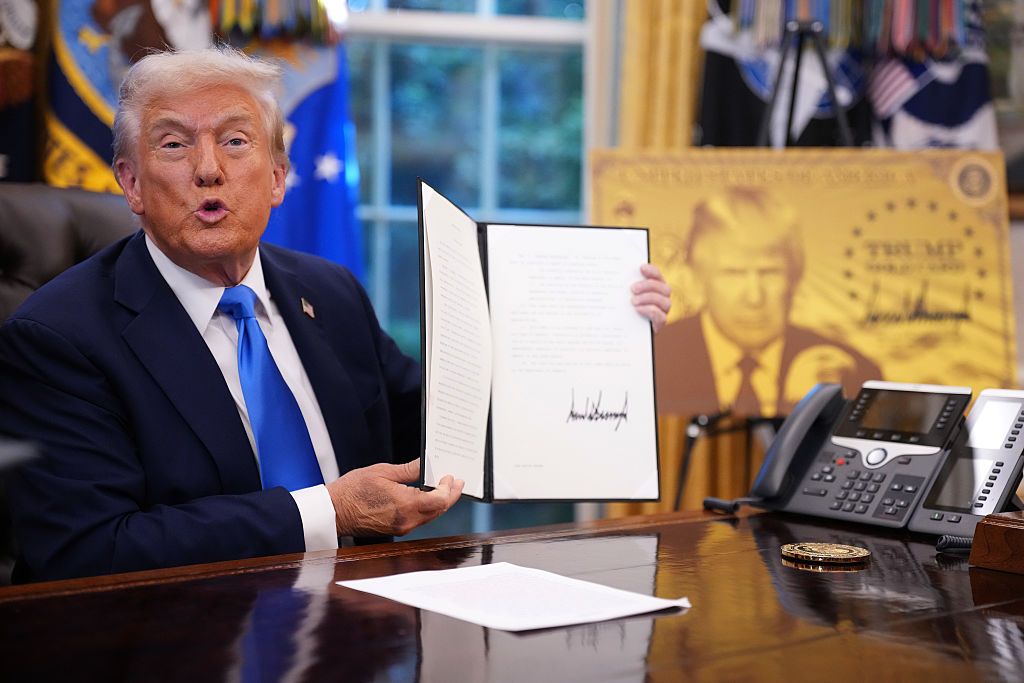President Trump Proposes $100,000 Annual Fee for H-1B Visas

President Trump has announced a proposal to impose a $100,000 annual fee on companies sponsoring H-1B visas. This change is expected to take effect soon and has prompted some large technology firms to advise their H-1B visa holders to remain in the United States or return quickly to avoid the new costs.
The technology sector, which relies significantly on skilled workers from countries such as India and China, could be notably affected by this policy. Since taking office, President Trump has implemented a series of immigration restrictions, and this adjustment to the H-1B visa program represents a prominent effort to modify temporary employment visas.
Commerce Secretary Howard Lutnick stated, “If you’re going to train somebody, you’re going to train one of the recent graduates from one of the great universities across our land. Train Americans. Stop bringing in people to take our jobs.”
The announcement has generated concern within the tech industry, which was a considerable financial contributor to President Trump’s campaign. Companies including Microsoft, JPMorgan, and Amazon have advised their employees holding H-1B visas to remain in the U.S. and to avoid international travel until further official guidance is available.
Employees outside the United States were encouraged to return before the implementation of the new fee structure. Legal advisors have recommended caution for those traveling internationally until clearer government instructions are issued.
Critics of the H-1B program argue that it may enable employers to suppress wages and limit employment opportunities for U.S. workers. Conversely, supporters, including Tesla CEO Elon Musk—who previously held an H-1B visa—assert that the program helps bring in highly skilled workers critical to filling talent gaps and maintaining competitiveness.
According to a recent executive order, some employers have been found to exploit the program by keeping wages low, which disadvantages American workers. The number of foreign workers in science, technology, engineering, and mathematics (STEM) fields in the U.S. has more than doubled between 2000 and 2019, while overall STEM employment increased at a slower rate.
Experts have raised concerns that the proposed fees could discourage international talent from coming to the U.S., potentially hindering innovation and economic growth. Smaller tech companies and startups may be disproportionately impacted by the increased costs.
Details about how the new fees will be administered are still under consideration. The proposed fee would apply annually for each of the three years the visa is valid. Currently, the application process involves relatively low fees, with additional costs upon approval.
Some analysts suggest that the fee increase may lead companies to relocate certain work abroad, which could affect the U.S.’s competitive position in areas such as artificial intelligence. While the government could see short-term revenue benefits, there are concerns about long-term effects on innovation.
India accounted for approximately 71% of H-1B visa approvals last year, with China representing about 11.7%. Several large technology companies have already received thousands of approvals for H-1B visas this year.
Commerce Secretary Lutnick indicated that major companies have been consulted and are generally supportive of the proposed fee increase. However, many corporations and diplomatic representatives have not issued public comments.
Following the announcement, shares of some information technology firms heavily reliant on H-1B workers declined, reflecting investor concern.
Legal experts have questioned whether the administration has the authority to impose fees exceeding the costs of visa processing, which Congress has authorized.
The H-1B visa program currently issues 65,000 visas annually to foreign workers in specialized fields, with an additional 20,000 visas allocated to individuals holding advanced degrees. Employers typically bear most of the associated visa costs, and visa durations range from three to six years.
In addition, President Trump signed an executive order to introduce a “gold card” program, which would allow individuals to obtain permanent residency in the U.S. by investing $1 million.

tayawin https://www.tayawinch.net